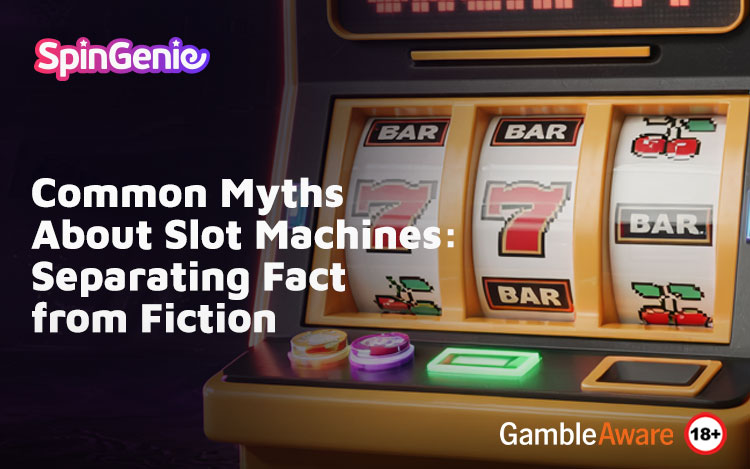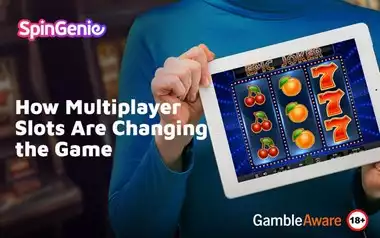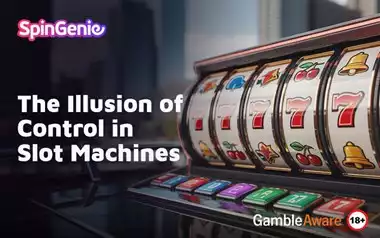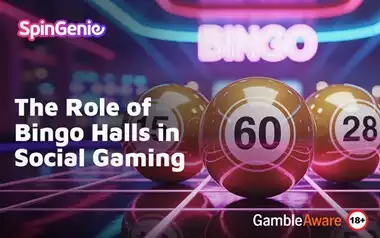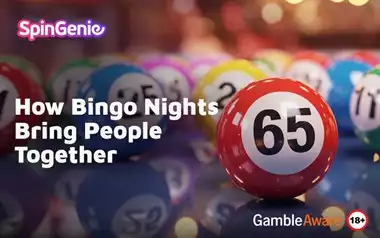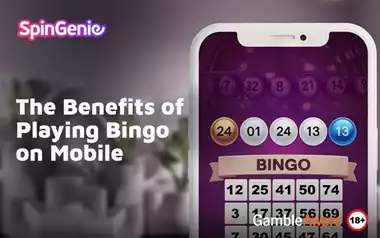Slot machines have captivated players for over a century, and throughout their evolution, numerous myths and misconceptions have taken root in gambling culture. These persistent falsehoods range from harmless superstitions to potentially costly misunderstandings about how online slots UK actually operate. While modern slots use sophisticated technology that's been rigorously tested for fairness, many players still cling to outdated beliefs that can negatively impact their gaming experience and bankroll management.
The prevalence of these myths stems from several factors. The inherent randomness of slot outcomes leaves room for pattern-seeking human minds to imagine order where none exists. Casino environments, with their flashing lights and exciting sounds, naturally encourage superstitious thinking. Additionally, the complex nature of slot payout determination makes it difficult for casual players to fully grasp how wins are calculated. By examining and debunking these common myths, we can help players develop more realistic expectations and strategies for their slot play.
Myth 1: "Hot" and "Cold" Machines Exist
One of the most enduring slot myths suggests that machines go through cycles of being "hot" (paying out frequently) or "cold" (not paying out). This belief leads players to hunt for machines that are "due" for a win or avoid ones that have recently paid out. The truth is far more straightforward - modern slot machines use Random Number Generators (RNGs) that ensure each spin is completely independent of all others.
The RNG technology in today's slots generates thousands of number combinations every second, even when no one is playing. When you press the spin button, the machine simply takes the next number in this continuous sequence to determine the outcome. There's no memory of previous spins, no cycles, and certainly no way for a machine to be "due" for a payout. This fundamental aspect of slot technology makes the concept of hot and cold machines completely fictional, though understandably appealing to our pattern-seeking brains.
Myth 2: The Casino Can Adjust Payouts Remotely
Many players suspect that casinos can tweak individual machines to make them looser or tighter depending on the time of day or how much they've been paying out recently. While this would make for an intriguing conspiracy theory, the reality is that licensed casinos cannot remotely adjust a slot machine's payout percentage. The payout structure is programmed into the game's software during development and cannot be altered without physical access to the machine and proper regulatory oversight.
In regulated markets like the UK, slot machines must undergo rigorous testing and certification before they can be offered to players. Once approved, the mathematical model that determines payouts cannot be changed without going through the entire certification process again. This ensures that players always get the fair game they expect when they sit down to play. The idea that casinos can simply flip a switch to change a machine's behavior is pure fantasy, though it persists because it provides a convenient explanation for losing streaks.
Myth 3: Higher Denomination Machines Pay Better
Another common belief suggests that machines with higher minimum bets (like £1 or £5 machines compared to penny slots) have better payout percentages. While it's true that some high-denomination games may offer slightly higher RTP (Return to Player) percentages in certain cases, this isn't a universal rule. Many penny slots have RTP percentages equal to or better than their higher-denomination counterparts.
The perceived difference often comes from the fact that higher bets mean larger potential payouts, not necessarily more frequent ones. A £5 bet getting a 20x payout results in a £100 win, which feels more significant than a 20p bet getting the same multiplier for a £4 win. The actual probability of hitting that winning combination remains the same regardless of your bet size. When choosing a machine, the denomination should reflect your bankroll and playing style rather than any assumed advantage in payout frequency.
Myth 4: Playing at Certain Times Increases Your Odds
Some slot enthusiasts swear by playing at specific times - early morning, late at night, or during shift changes - believing these periods offer better chances of winning. This myth likely stems from observations of jackpot winners or personal anecdotes about winning at particular times. However, the random nature of slot outcomes means time of day has absolutely no effect on your chances of winning.
Online slots operate 24/7 with the same RNG technology constantly running in the background. There's no magical time when the algorithms become more generous. Land-based casinos similarly have no mechanism to make machines pay out more at certain hours. While it might feel like you have better luck playing at 2 AM, this is simply selective memory at work - we tend to remember our wins more vividly than our losses, especially if they occurred during unusual playing times.
Myth 5: Slots Near High-Traffic Areas Pay More
A persistent land-based casino myth suggests that machines placed in high-visibility areas - near entrances, aisles, or cashiers - are programmed to pay out more frequently to create excitement and attract players. The logic seems sound from a marketing perspective, but it doesn't hold up to scrutiny. Like all slot myths, this one fails to account for how RNG technology actually works.
Casinos don't need to manipulate individual machines to create excitement. The natural variance in slot payouts means some machines will always be hitting while others aren't, regardless of their location. Placing attractive games in high-traffic areas makes business sense, but their payout percentages are the same as identical machines elsewhere on the floor. Regulatory bodies would never allow the kind of selective payout manipulation this myth suggests, as it would violate the principles of fair gaming that licensed operators must uphold.
Myth 6: Using Player's Club Cards Reduces Your Chances
Some players avoid using loyalty cards, believing that casinos use them to identify "advantage players" and reduce their payout odds. This myth demonstrates a fundamental misunderstanding of how slot technology works. The RNG that determines outcomes operates completely independently of any player tracking system. There's no mechanism by which inserting a player's card could influence the randomness of results.
In reality, player's club cards only track your play for comp purposes and have no connection to the game's payout system. Not using your card means missing out on valuable rewards and benefits that can significantly enhance your overall casino experience.
Myth 7: You Can Predict When a Jackpot Will Hit
The dream of predicting a progressive jackpot's imminent payout has spawned countless systems and strategies. Some players track jackpot amounts, looking for patterns in when they typically pay out. Others watch for machines that "seem ready" based on near-misses or other false indicators. The uncomfortable truth is that progressive jackpots are just as random as any other slot outcome.
Each spin on a progressive jackpot slot has an independent chance to trigger the top prize, regardless of how long it's been since the last win or how large the jackpot has grown. While the odds might seem to improve as the jackpot increases (because more people are playing), your personal chances remain exactly the same with each spin.
Myth 8: Slots Pay More to New Players
Some players believe casinos program their slots to give better payouts to new players as a form of "hooking" them, then tighten up the machines once they're regulars. This myth plays on our tendency to remember initial wins more than subsequent losses, but it has no basis in reality. Slot machines don't have the capability to identify individual players or adjust payouts based on their playing history.
The randomness of slot outcomes means new players can experience both winning and losing streaks just like regulars. What often happens is that beginners remember their early wins vividly (the "hook") but gradually start noticing the losses more as the novelty wears off. This creates the illusion that the machines were more generous at first when in reality the probabilities never changed.
Responsible Play in Light of the Truth
By recognizing slots for what they truly are - beautifully designed games of chance - players can focus on the entertainment value rather than chasing false strategies. Some key takeaways for responsible play include:
- Accept the randomness: Every spin is independent, with outcomes determined the instant you press the button
- Ignore "hot streak" fantasies: No machine is due for a win, and none are "cold" either
- Play for fun first: Choose games you enjoy rather than ones you think might be "ready" to pay
- Use your player's card: Take advantage of legitimate rewards without fear of being "marked"
- Set limits: Decide in advance how much time and money you're willing to spend
By letting go of these persistent myths, you can enjoy your time playing online slots without the frustration of chasing false strategies.
